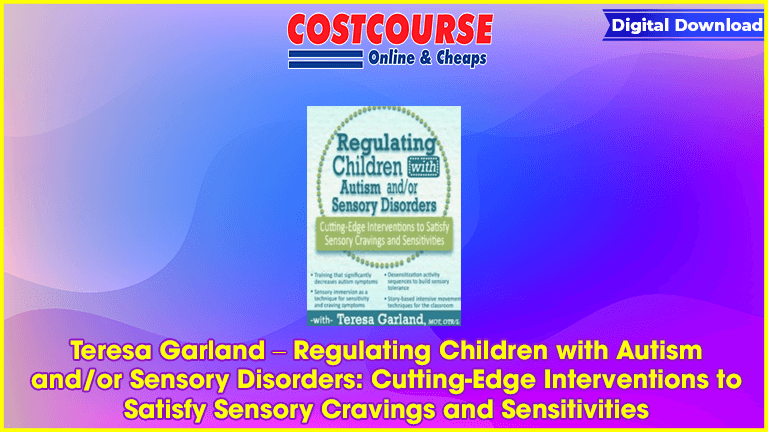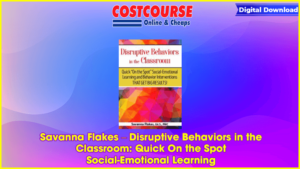Description
Join Teresa Garland, MOT, OTR/L, author and expert on sensory and modulation issues and learn cutting-edge interventions for satisfying sensory cravings and sensitivities in children (2-16 years) with autism and sensory modulation issues.
Teresa Garland – Regulating Children with Autism and/or Sensory Disorders: Cutting-Edge Interventions to Satisfy Sensory Cravings and Sensitivities
In the first portion of this seminar, you will learn an effective step-by-step protocol that significantly decreases autism symptoms through the use of 15 sensory enrichment interventions. You will come away with exercises that help children attend to, register and tolerate temperature, touch, sound, vision and vestibular activities. The protocol can be done at home, in school or during early intervention classes. The individual exercises can be used to help solve specific issues.
In the second portion of this seminar, the focus is on immersion in sensation with four different types of interventions:
Desensitization of sound, textures and taste/smell
Activities using crafts and games that calm sensitivities and satisfy cravings
Story-based intense movement routines for all ages that “significantly†help with classroom performance
Cognitive activities to help children reframe their sensory experiences
Dozens of new activities to use with your clients and students will be shown with videos and live demos.
OUTLINE
Current Brain Research and SMD Symptoms
Latest research of sensory processing in the brain
What we know about oversensitivity, under-sensitivity and craving
A Program to Enrich the Senses in Autism
Decrease autism symptoms: Latest research
How the program works
15 exercises to increase awareness of touch, temperature, vision and movement
Additional exercises to increase tolerance of sound and scent
Grading the exercise (harder/easier)
Adding in speech, emotion and movement
Tips you can teach parents/caregivers and teachers
Sensory Desensitization Strategies
How to play with food – new ideas
Games for sound desensitization
A sequence of interventions for touch desensitization
Sensory Immersion Strategies
Sensory sensitivity: How to find ease with immersion in sensation
Sensory craving: How to turn cravings into hobbies
Touch and vision: Yarn, stone, wood, paper and metal crafts and activities
Sound: Music, games, rhythms
‘Wearable’ scent
Plan and design multi-day multisensory projects
Movement Exercises to Calm and Manage Stress
4- and 7-minute high intensity interval training (HIIT)
FUNterval stories and routines for all ages
Create your own FUNterval
Wrap-up: Helping the Unhappy Sensory Child
Finding the child’s inner happy self
Making the shift from negative to positive outlook
OBJECTIVES
Employ a protocol that effectively activates the senses in autism.
Plan a graded sequence of activities for touch desensitization.
Demonstrate sensory immersion activities that satisfy touch cravings and sensitivity.
Create four-minute, intense fun movement routines for the classroom.
Design funny stories with taped sound effects for sound sensitivities.
Implement a smell immersion technique for calming.
Use simple crafts to build sensory hobbies.
List five ways to reframe a child’s sensory experience.
Discuss the latest research findings in the field of sensory modulation.
Handouts
Regulating Children with Autism and/or Sensory Disorders (5.41 MB) 48 Pages Available after Purchase








